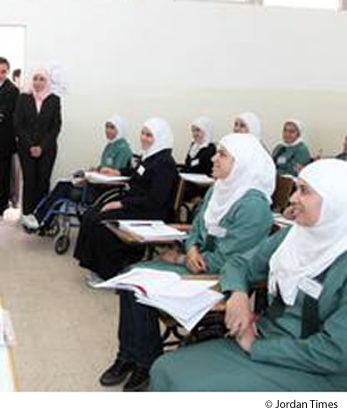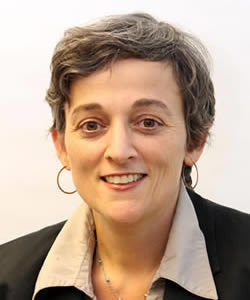Constructing Proper Faith in a Girls' High School in Jordan
Constructing Proper Faith in a Girls' High School in Jordan Video Player
November 6, 2009
Location:
Intercultural Center (ICC) Contemporary Arab Studies Board Room (ICC 241) Map
The power to interpret religious knowledge and define the terms of religious propriety is contested in many countries throughout the Muslim world today. Yet beyond analysis of curricular content, very little scholarly attention has been focused on the role of schools in such contests. This event addressed struggles surrounding moral authority through an ethnographic exploration of religious teaching and practice in a girls' secondary school in Jordan. It examined both the formal or official religious curriculum, as well as the unofficial religious educational efforts underway in school. It also provided a glimpse of the daily struggles between text, teacher, and students to define proper Islamic mores for women in Jordan today. Outside the formal and intended curriculum there are a myriad of ways and spaces in the classroom, prayer room, school yard, and teachers' room within which actors in school are engaged in efforts to teach each other about religion, religious practices, and living as pious Muslim women. Competing visions of Islamic orthodoxy come to the fore in schools in unique ways, and schools provide a space and new tools for negotiating the ensuing tensions.
This event was co-sponsored by the Berkley Center for Religion, Peace, and World Affairs and Georgetown's Department of Anthropology.
Discover similar content through these related topics and regions.
Image Gallery
Image Gallery
/1

Constructing Proper Faith in a Girls' High School in Jordan
Featured Participants
Opens in a new window

